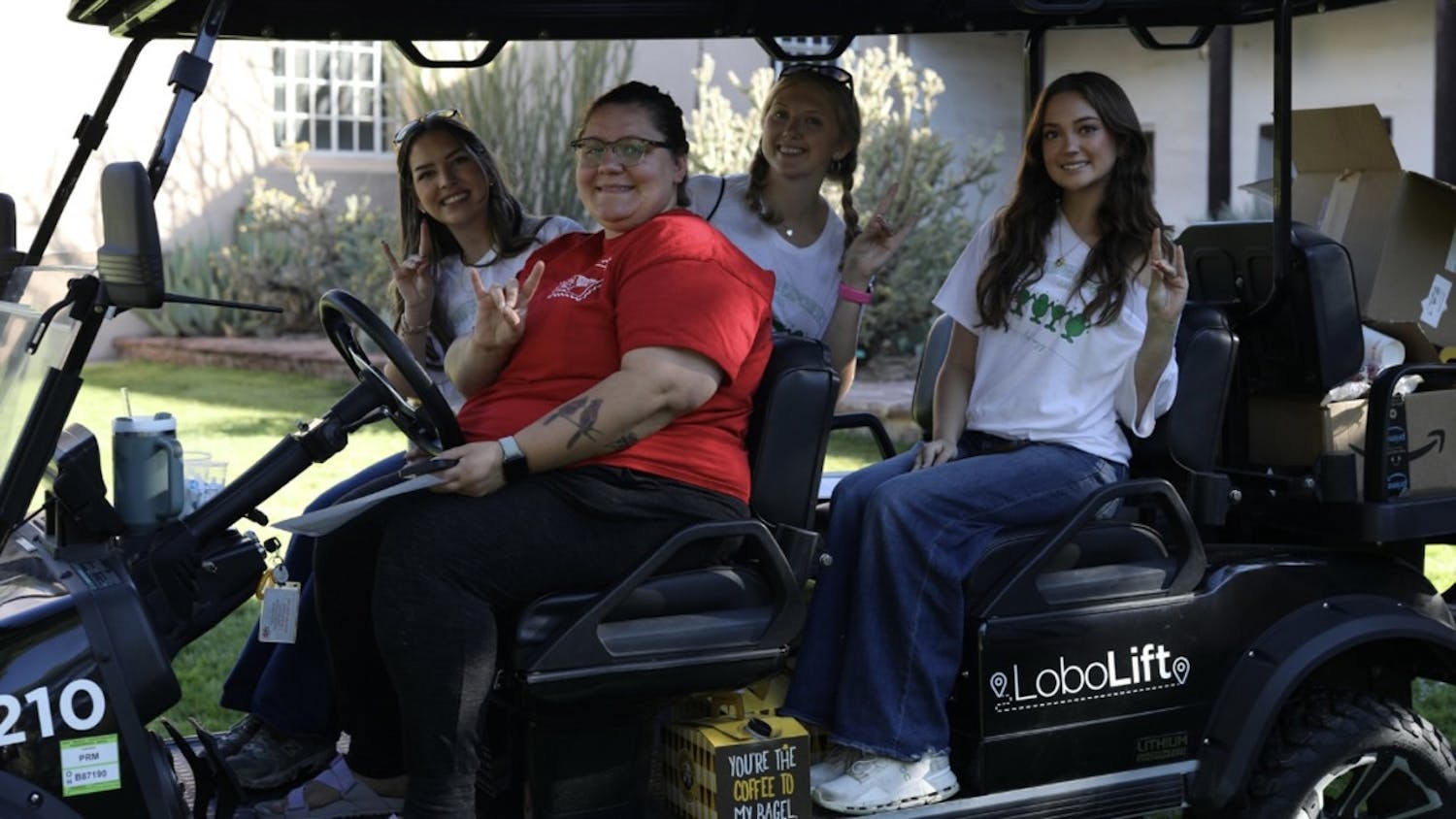UNM policy draws a hard line on inter-office romance — leaving the topic of student-faculty friendship a bit more ambiguous.
Some feel that engaging with students outside the classroom can have possible educational benefits, but these benefits are situational and some relationships have to be monitored by UNM.
Pamina Deutsch, director of the UNM Policy Office, said there is no policy regarding faculty having lunch, dinner or a beer with students, but some departments have developed their own regulations.
However, there is policy regarding intimate and sexual relationships.
“The policy applies to faculty-student romantic or sexual relationships where there is a power differential and the faculty superior has a formal instructional, supervisory, evaluative or advisory role over the subordinate student,” Deutsch said.
According to UNM policy, the “superior” party has an obligation to report a romantic relationship regarding “a subordinate with whom the superior is involved in a consensual relationship.”
Moreover, according to policy, actions will be taken by the University to “eliminate conflicts of interest and mitigate adverse effects on third parties.”
The University normally has no interest in romantic or sexual consensual relationships involving members of the campus community, UNM policy states. However, when such relationships occur in educational or supervisory contexts, they can present “serious ethical concerns.”
However, there are other “positive” relationships teachers can foster.
“Positive teacher-student relationships draw students into the process of learning and promote their desire to learn,” according to a study by Sara-Rimm-Kaufman and Lia Sandilos of the University of Virginia.
Rimm-Kaufman and Sandilos, along with the American Psychological Association, said building “positive” relationships with students is essential as a support mechanism.
“Improving students' relationships with teachers has important, positive and long-lasting implications for both students' academic and social development,” Kaufman and Sandilos said. “The student is likely to trust the teacher more, show more engagement in learning, behave better in class and achieve at higher levels academically.”
Get content from The Daily Lobo delivered to your inbox
Renee Brown, a doctoral candidate in biology, believes it can be beneficial to fraternize outside of the classroom but, particularly for undergraduate students, she’s not sure if it's appropriate during the semester.
“As a grad student, things are a little different, and more common to be closer to the professors than the undergrads,” she said. “I think it allows for more and better conversation in a more neutral setting.”
Brown believes fraternization outside of school, in moderation, can be beneficial in other ways as well.
“It helps to get to know each other as people,” she said. “Which can sometimes lead to good opportunities for (both) school and a career.”
According to the National Education Association, building these “positive” relationships requires conversations about “sports, TV, school activities” and clothing. Moreover, listening to and interacting with students will make teachers seem genuine and interested in their students.
Karra Shimabukuro, a doctoral candidate in the UNM English Department and creator of Wiki page "How to Prep for Grad School While Poor," said that engaging students outside the classroom has been beneficial to her educational career.
Engaging with other faculty outside the UNM classroom has helped Shimabukuro determine how she wants to approach relationships with her own students, and can help other students feel more welcome at the University.
“I have had graduate professors invite classes over and out for dinner. These informal meals have been nice to get to know them and their interests, as well as modeling the types of mentoring relationships I'd like to have with students,” she said. “I've also been a part of programs within the English department that foster these mentoring relationships, and it has allowed me to get to know my professors, seek out future mentors, and see how professors act.”
Shimabukuro said that for students from low-income backgrounds, engaging with teachers outside of class can be beneficial and make a student feel accepted.
Connor Williams, a senior political science major, said meeting with a teacher in an environment other than a classroom or an office helps him relate to a professor more.
“I met my professor with a group at Tractor (Brewery) once and my professor and I ordered the same beer, which immediately opened up a discussion about what we like to drink and helped the conversation about course work seem like less of a chore and more of an interesting, casual chat,” Williams said.
However, Shimabukuro said teachers must be both self aware and aware of the student’s positionality as well.
“I think that a lot of this depends on the professor,” Shimabukuro said. “If the professor comes from a similar background and has shown themselves open to helping and supporting students, this can be very beneficial.”
If a teacher is not from a similar background as the student, the student could feel isolated, she said.
“If, however, a professor is out of touch with these experiences they can make a student feel more isolated and like they don't belong,” she said. “I think there's a fine line as there are instances of power being abused due to class, gender (and) race, and I also believe it's important that students are aware that there are avenues for reporting and addressing these instances.”
Shimabukuro said it is mainly the University’s responsibility to be open and supportive of UNM students.
“I think it's important for departments to tell their students how to engage with professors outside of the classroom, as part of professionalizing them,” she said.
Jonathan Natvig is a news reporter for the Daily Lobo. He can be reached at news@dailylobo.com or on Twitter @Natvig99.





